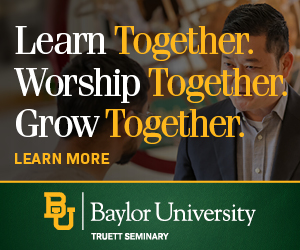One of the great questions of history is, “Can one person make a difference?”
History tells us it is possible. We can look at the influences of Martin Luther King in the civil rights battles of the past century. Going back one more century, we see how the inventions of Thomas Edison and Alexander Bell, the light bulb and telephone, respectively, changed our ways of living and communicating. For the ultimate difference one person can make, we need to go back twenty-one centuries when heaven invaded earth in the birth, life, death and resurrection of Jesus Christ.
The next question that should be asked is, “Can I make a difference?” The Bible says “yes!” According to our text, we see one man, Josiah, made ruler of Judah at the age of 8, hears God’s word at the age of 18, becomes convicted of the spiritual rebellion and sin in Judah, and leads his nation in repentance and reform.
In the time in which we live, we see some of the same attitudes and acts of rebellion against God, his word and his people. There are some things that are terribly wrong in the culture in which we live. What do we see? We see poverty, injustice, racism and crime. We also see the growing tolerance of the evils of personal and societal sexual immorality and dishonesty.
Last and most troubling of all is the devaluation of human life in general through senseless taking of life whether on the streets in our cities, in wars around the word or in abortion clinics. How can we make such a difference that our families, cities, states and nation see positive, godly change? The Scriptures we are given this week point to us four biblical principles Josiah used to change the spiritual direction of his kingdom.
When Josiah became king at age 8, his kingdom had been led for 55 years by his grandfather, Manasseh. His father, Amon, only served two years before his assassination. Both of these men led Judah to follow other gods, desecrate the temple, and teach through actions of murder and human sacrifice that human life was cheap. At age 18, Josiah led the people to repair the temple where the “Book of the Law” was found (2 Kings 22:3-8).
Here we find the first principle Josiah used to change the spiritual direction of his society. When the Book of the Law was read to him, Josiah “tore his robes” out of conviction and repentance for the sins of Judea.
After hearing a reading of God’s law, he commanded his servants to find out what would be needed to avoid divine judgment. His advisors returned after studying God’s word and gave Josiah an “action plan” or “blueprint” to bring about a change in the culture of his kingdom.
It is in studying the Scriptures and praying for God-given understanding that we can come to know how he can use us to make a positive difference in our world that brings change to society that glorifies him.
Sign up for our weekly edition and get all our headlines in your inbox on Thursdays
In 23:1-3, Josiah calls people from all walks of life to the temple in Jerusalem to hear the Book of the Law read. He then pledged to lead them according to the Lord’s ways. The second principle Josiah practiced to change the sinful, rebellious culture of Judah was to encourage others to follow him as he set the example of living according the word of God. Josiah asked his people to trust and follow him as he followed the Lord. That is what the Lord calls Christians to do in this day and age. Instead of complaining about the sins around us and condemning those who have fallen, we need to follow Jesus and ask others to do likewise.
As one reads the sins of Josiah’s grandfather and father, none of them, in my view, is more disconcerting than the barbaric practice of child sacrifice outside Jerusalem. In 23:4-23, the writer outlines a number of cultural and spiritual reforms Josiah implemented. In 23:10, we read where Josiah destroyed the altar where people, including his grandfather, committed child sacrifice. They were sacrificing their children to false gods.
In our society, there are too many abortions that take place because of the selfishness of the two who conceived the child. There also are too many children who are placed in situations and conditions where they are physically, mentally and spiritually abused. These children are sacrificed on the altar of selfishness and abuse. Christians can help build a godly culture by working to protect the lives and well-being of every child—born and unborn.
The last biblical principle Josiah demonstrated is recorded in 23:24, 25. Josiah continued in his campaign to remove all of the pagan practices his father and grandfather had either initiated or allowed. The principle is that Josiah’s passion was seeking to spiritually bring his people to follow the “Book of the Law.” It is the responsibility of all believers in Jesus Christ to be used by him to make a difference in our culture by following his example of being its light and salt.
By following these four biblical principles, Josiah gained a reputation of having no equal in wholeheartedly turning to the Lord. He made a difference. As believers, we can keep working to build a godly culture of life, realizing that such a goal is worthy of wholehearted, lifelong effort. Let’s make a difference!












We seek to connect God’s story and God’s people around the world. To learn more about God’s story, click here.
Send comments and feedback to Eric Black, our editor. For comments to be published, please specify “letter to the editor.” Maximum length for publication is 300 words.